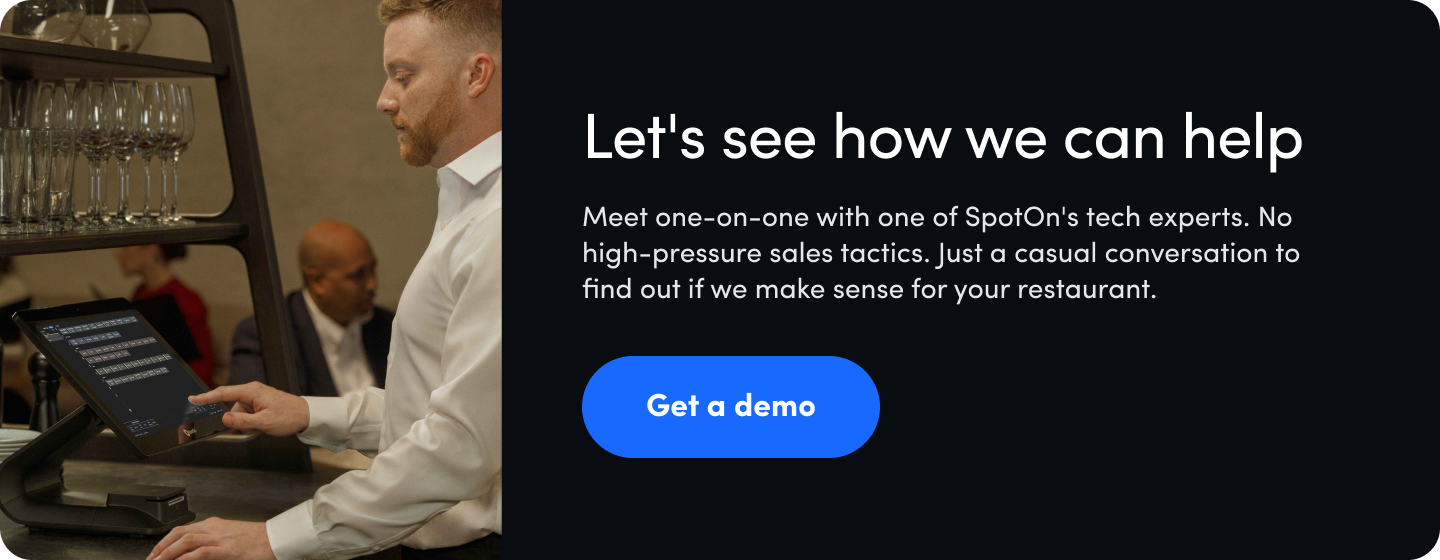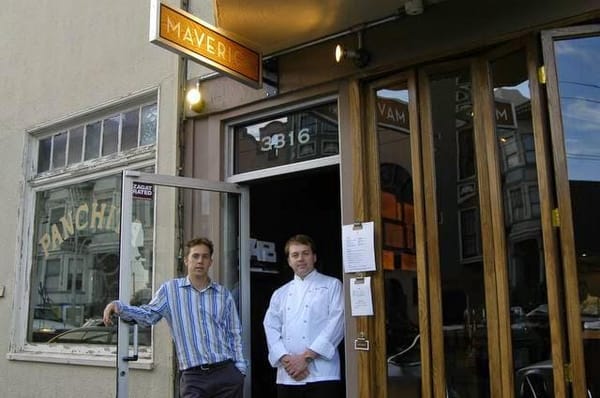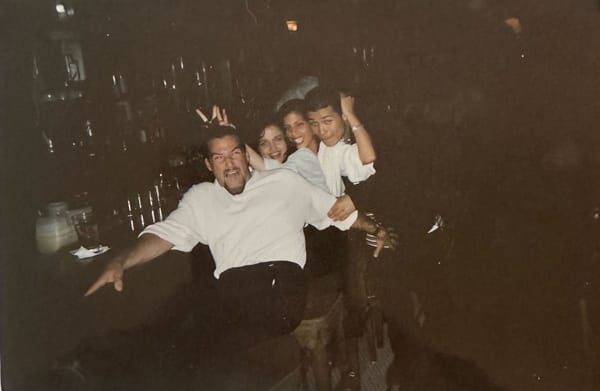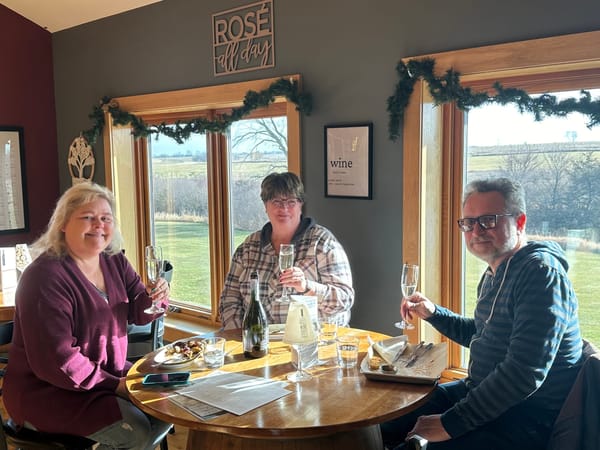Saige Hyde didn’t expect to start her week staring down freshly butchered lamb shanks. Despite years of kitchen experience, she was in new culinary territory. One wrong trim would make for an expensive mistake. But under the tutelage of an expert team, Saige powered through. She left six hours later, a good deed for the day notched, with an expanded set of cooking skills and a new pair of closed-toe shoes. And it was only Monday.
While new to SpotOn, Saige is familiar with unconventional work days. After going to school for marketing, she completed a 4-month culinary training course through her new role, pivoting to become a kitchen manager for a growing restaurant chain in Florida. Saige was tasked with managing the restaurant’s most precious resource: the people. She oversaw the front of the kitchen and the expo station, monitored orders, and helped correct anything that wasn’t to spec. She lived the 15-hour days of a restaurant manager, creating schedules in the back office and jumping on the line to teach techniques to a new cook.
Saige knew that investing in employee well-being and growth could pay dividends, if not in dollar bills, at least in terms of creating a positive work environment for hardworking people. “Working in a kitchen is an equation at the end of the day,” says Saige. “But caring for your employees and the people who work so hard to create this meal, that puts it in perspective.” Saige saw her role as caring for the people who care for people. If that meant going on an ice cream run during a particularly hot day in South Florida or redirecting a not-to-spec burger to the dishwasher after his long shift, so be it.
“When I first started at SpotOn, I remember thinking how much time I could have saved if my restaurant had had SpotOn.” - Saige Hyde, Hospitality Specialist
“Restaurants aren’t about food. They’re about everything,” says Saige. It’s never just a burger. It’s the portion size, the temperature, the plating, and the side dish options. Did the burger come highly recommended? What was the décor like where the burger was served? Was the music too loud to serve as the soundtrack with which to eat a burger? But the challenge isn’t keeping all these factors in mind, it’s that the answers are all subjective.
Hidden within guests’ overt preferences are other clues. If a guest says “no vinegar,” it could mean they don’t like pickles. You have to be a mind reader in a world where everyone’s mental book is written in a different language. “I might think this is the best chicken sandwich I’ve ever had, and you might not like it,” says Saige. “That’s one of the hardest things about the restaurant industry.”
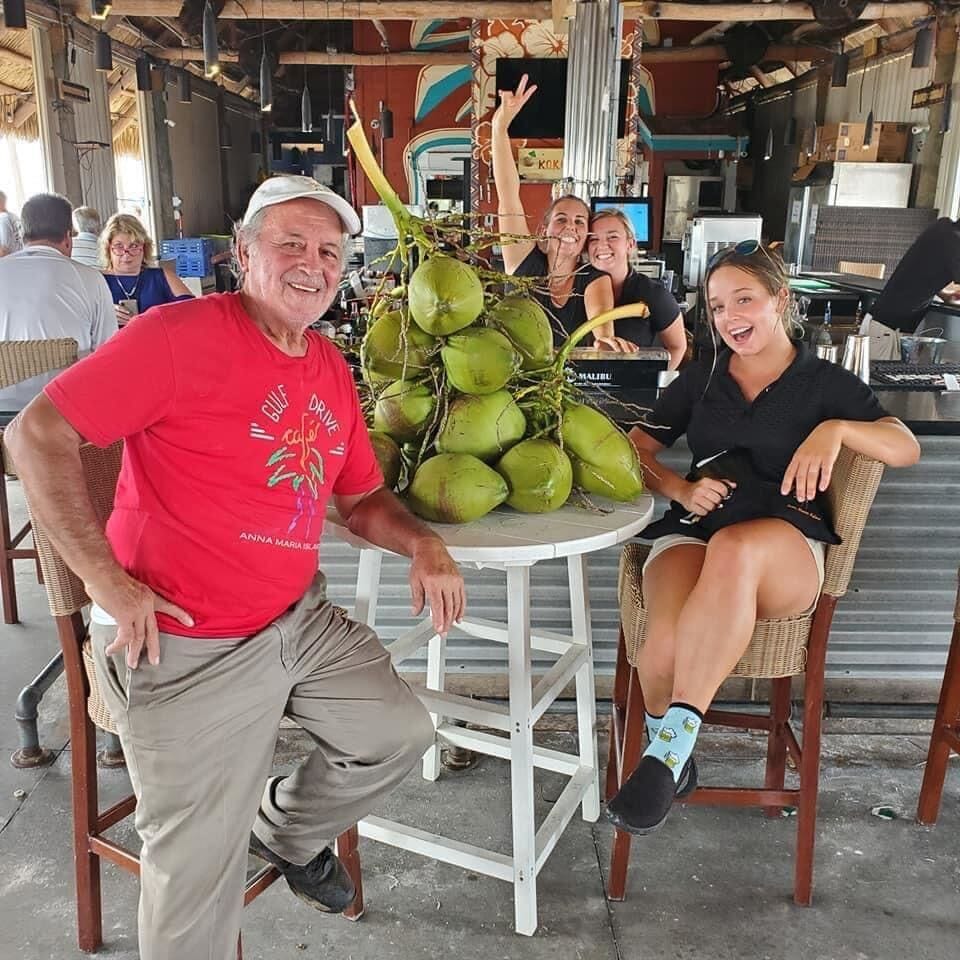
The operative word is “one of.” Saige knows that hard things are endemic to the restaurant industry. “I remember being on the phone with a POS system for an hour and a half during a dinner rush,” says Saige. “I thought to myself: what are we paying you for?” While the hardships become more familiar, they don’t get much easier. So, when Saige walked into an upscale wine bar (and prospective client) to see a manager with his head in his hands, she felt his pain. Their head chef had just walked out before a big shift, leaving the rest of the kitchen in the lurch. Added to the manager’s woes was the fact that they had spent so long hiring for the role.
“I told him, ‘Look, SpotOn aside, I will help you right now. I want you guys to succeed. We’re friends. I’m by no means a chef, but if you need help, I will go back there and help you right now,” says Saige. She hadn’t worked in fine dining before, but years of training kitchen staff gave Saige confidence these skills could be picked up—at least for a couple of hours until the rush subsided. She ran out for a pair of closed-toe shoes to swap out her sandals and headed back to the kitchen to a staff looking at her, expecting to be told what to do. It was a déjà vu moment. But she wasn’t there to manage. “I said, ‘This is your kitchen. You can tell me what to do,” says Saige.
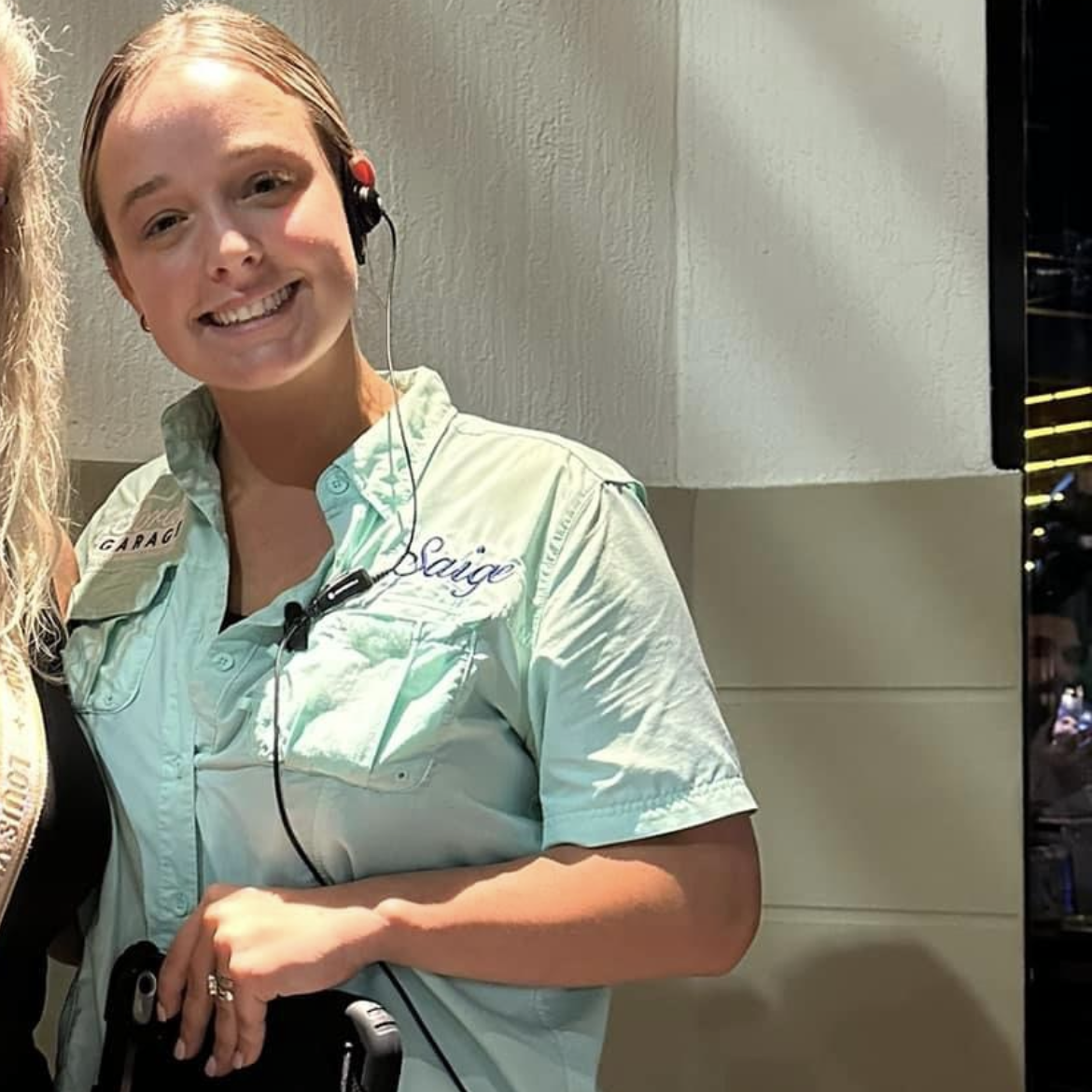
A few orders of escargot later, Saige was out of the kitchen and back to being a Hospitality Specialist, albeit one with more fine dining skills. It was a great experience for Saige, but it was an immeasurable help to the wine bar’s manager, who told her in his 25 years in the industry he had never seen someone care like that. For Saige, the day’s agenda was unexpected but not totally unheard of. When she saw the dejected wine bar manager, she thought of her manager, Preston, who embodies what it means to work for SpotOn (and be a great human) in Saige’s book. “If Preston were there,” says Saige, “He would totally help those people.”
Saige will always love the hospitality industry. SpotOn has become her newest medium. “Whether you’re a hostess, a dishwasher, a server, people who work in restaurants work their butts off,” says Saige. And if Saige is in the area, she’ll be there to lend a hand.
